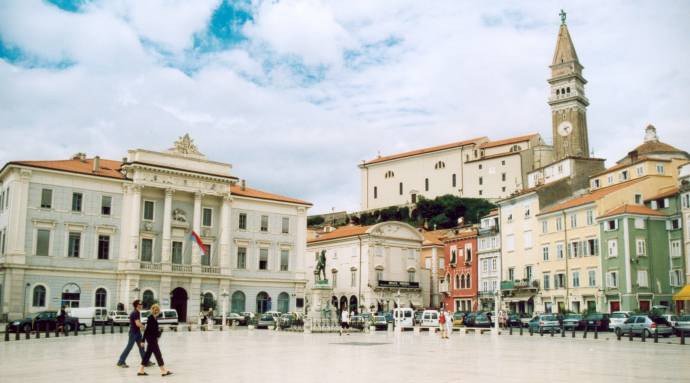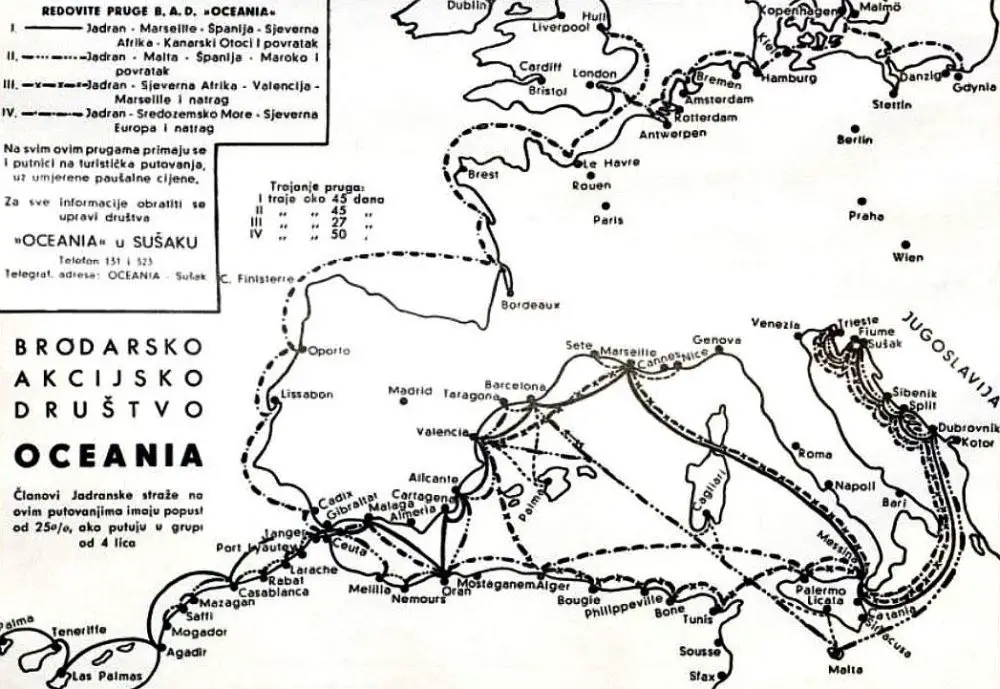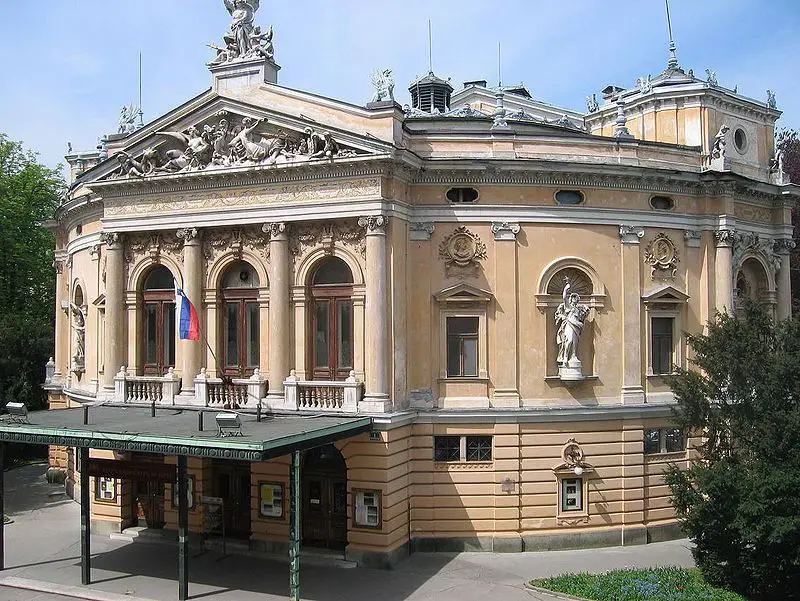April 2, 2018
April 2
In 1917, one year before the dissolution of the Austro-Hungarian Empire, the Oceania ship company was established by Slovenian and Croatian businessmen in Trieste. After the war, Slovenian and Croatian businesses that found themselves on the Italian side of the border faced many obstacles which is why Oceania moved to Sušak, Croatia. The company ceased to exist in 1947 when planned economy was being introduced to Socialist Yugoslavia.
Oceania travel advertisement 1937
April 3
In 1924 Slovenian film director Igor Pretnar was born in Ljubljana. Pretnar was the only Slovenian post-WWII director who received a film education at the Moscow All-Soviet School of Cinematography. An example of his filmmaking can be seen in a video below, from the movie titled Self-sown.
April 4
In 1883 the first electric bulbs were switched on in Maribor. Thirty-six bulbs were connected to electricity generated by Scherbaum's steam mill. A year later Postojna cave was lit, and a year after that the baths in Laško. In 1890 Škofja Loka became the first Slovenian town with street lights, and electricity was also delivered to several private homes. Only seven years later did Ljubljana get its first street lights.
April 5
In 1916 Marija Ilc, later known as Sister Vendelina was born in Ribnica. Vendelina was a teacher most of the time, but spent her last years collecting old and almost forgotten recipes. These recipes were added to Slovenska Kuharica cooking book, a job she inherited from Felicita Kalinšek. Although the first Slovenian cooking book had been published by Valentin Vodnik in 1799, Slovenska kuharica, the second cooking book after Vodnik's, remains the most used such book in the history of Slovenia.

April 6
In 1941 Germany, Italy and Hungary attacked the Kingdom of Yugoslavia without a declaration of war but with an early morning bombardment of Belgrade. The National Council for Slovenia was established on the same day, a Slovenian representative body during the so called “April wa”. The last session of the national council took place on April 17, and the next day it had to hand over its powers to the Italian civilian commissioner Grazioli.
April 7
In 1914 the only Slovenian professional theatre closed its doors due to the beginning of the war and political pressure because of its anti-clerical programme. The theatre is now Ljubljana's Opera House.
April 8
In 1692 Giuseppe Tartini, a violinist, composer, music theoretician and a pedagogue was born in Piran. You can learn about the square named after him here, and see how it was once part of the sea.








